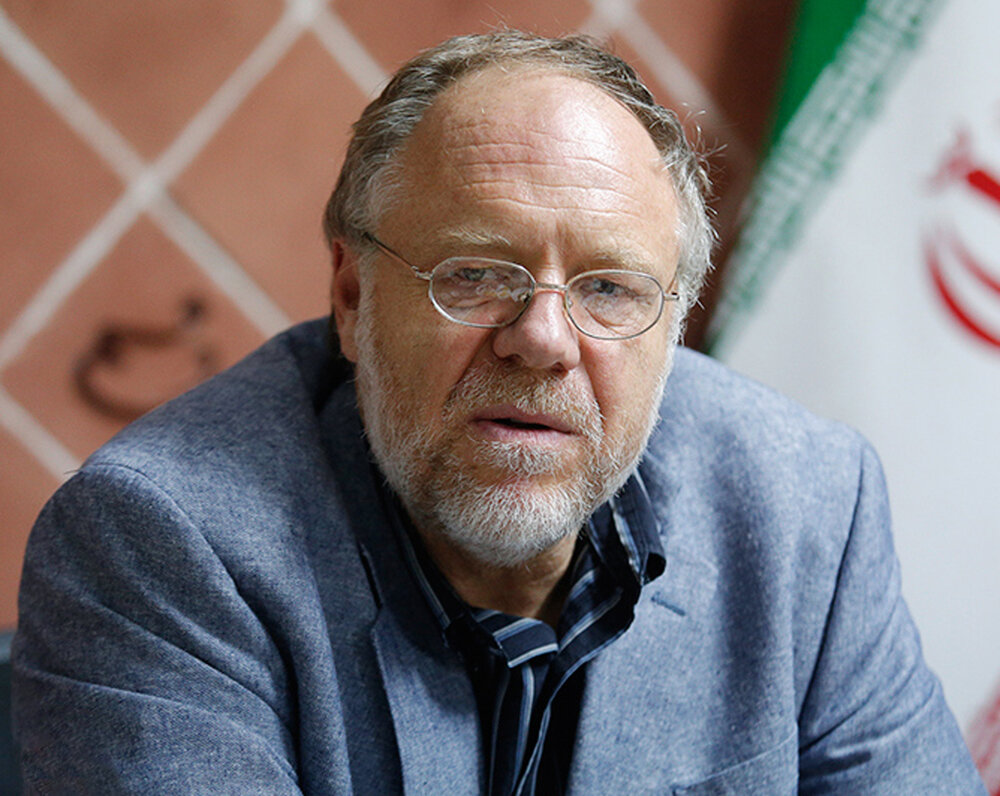UN privileges status quo over both peace and justice, American scholar says

TEHRAN - Kevin Barret, an American Arabist-Islamologist scholar who has been known as one of America's best-known critics of the war on terror, says the United Nations cannot be considered as “a genuinely democratic international organization”, arguing it has instead been as an “instrument of American and Western soft power”.
“I would argue that the UN does not privilege peace over justice. Instead, it privileges the status quo over both peace and justice. And the status quo is not peace, it is war,” Barrett tells the Tehran Times.
Author of ‘From Yahweh to Zion’ says that the biggest failure of the United Nations has been its “acquiescence to the Zionist genocide of Palestine” and although the UN occasionally has condemned Zionist regime, but Israel “has flouted all such resolutions with the support of the U.S.”
The following is the full text of the interview:
Question: The United Nations was set up in 1945 as an international umbrella organization with several objectives primarily including the prevention of war and maintaining peace in disputed areas. However, the UN has failed several times across the world, from the disaster of the UN peacekeeping missions in Rwanda and Bosnia in the mid-1990s to the UN silence on the Yemen genocide by the Arab coalition, the UN track record has been spectacularly unimpressive. What have been the main causes of these failures?
Answer: The United Nations was created by the victors of World War II, led by the then most powerful nation, the United States. It was never really meant to be a genuinely democratic international organization. Instead, it was conceived as an instrument of American and Western soft power. Its purpose was to endorse Western wars of aggression and neocolonialism and give them a thin veneer of fake international legitimacy. That is what happened when U.S. President Truman took a bribe of $2 million in cash in a suitcase (an enormous sum in those days) from his Jewish mafia friend in return for pushing through the U.S. and UN endorsements of the creation of so-called Israel. UN member states were bullied and bribed into going along with this genocidal act.
“I don’t think the United Nations will develop into a real organization until it faces a crisis of epic proportions, which may happen in the near future with the collapse of the U.S. empire.”The same was true with the UN endorsement of the U.S. war on Korea. Though member states occasionally pushed back against the U.S. and Zionist bullies, they had no power to actually prevent any wars or acts of aggression and resource theft. The three biggest problems are 1) the U.S. and its occupied “allies” are overrepresented on the Security Council, which unlike the General Assembly actually has (theoretically at least) a modicum of real power; 2) the UN depends on funding from rich countries led by the U.S., and tends to obey its paymasters; and 3) there is no real enforcement mechanism, so powerful countries can ignore any UN dictates they don’t like, which is what Israel has consistently done, with U.S. support.
Q: As you pointed it out one of the biggest failures has been Israeli occupation since 1948. How can this passivity be explained?
A: The UN’s acquiescence to the Zionist genocide of Palestine represents the international community’s biggest failure since World War II. Though the UN has condemned Israel in 45 resolutions, demanding that the Zionists allow refugees to return and be compensated for their losses and suffering, that they pull out of occupied territories, dismantle settlements, stop stealing Palestinian resources, give up its nuclear weapons, and start behaving like a normal country, Israel has flouted all such resolutions with the support of the U.S. The first time the U.S. ever withdrew its support for Israel at the UN was at the end of Obama’s term in 2016. Unfortunately, Obama’s parting gesture was only symbolic.
Q: The United Nations came into being in 1945, following the devastation of the Second World War, with one central mission: the maintenance of international peace and security. Some experts argue that we could easily replace “international peace and security” by “status quo”. In other words, “international justice” has no voice among the UN’s purposes and the UN Security Council has the primary responsibility-in maintaining status quo- to benefit big powers. Could we say that the UN is a place where “peace” has privilege over “justice”?
A: I would argue that the UN does not privilege peace over justice. Instead, it privileges the status quo over both peace and justice. And the status quo is not peace, it is war. The U.S. has been at war for more than 90% of its history. During the time of the UN’s existence, the U.S. has perpetrated what historian William Blum called “the American Holocaust,” killing tens of millions of innocent people in wars and regime changes all over the world. During the same period, Israel has waged a nonstop war of terror against the Palestinian people. The UN has accepted this status quo. It has supported war and injustice, not peace and justice.
Q: The United Nations entered 2020 with the expectation that global humanitarian — and financial — problems are set to worsen. Although the UN is marking its 75th anniversary, it is dealing with serious challenges, including climate change, health pandemics, inequality and conflicts. In your view, what is your prediction of the UN performance?
A: I don’t think the United Nations will develop into a real organization until it faces a crisis of epic proportions, which may happen in the near future with the collapse of the U.S. empire. Once the world is officially and effectively multilateral, the international institutions will have to change to fit the new reality. At that point, the UN could develop independent funding and enforcement mechanisms, abolish the Security Council, and become fully democratic, and able to enforce a modicum of peace and justice.
